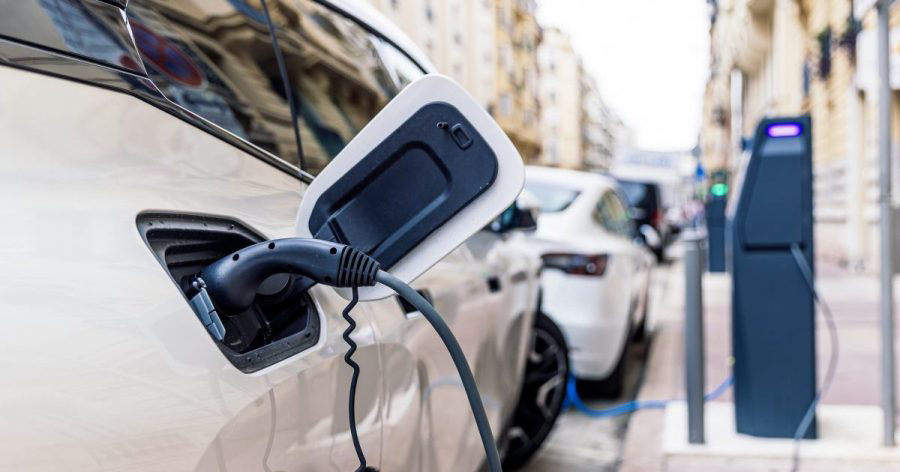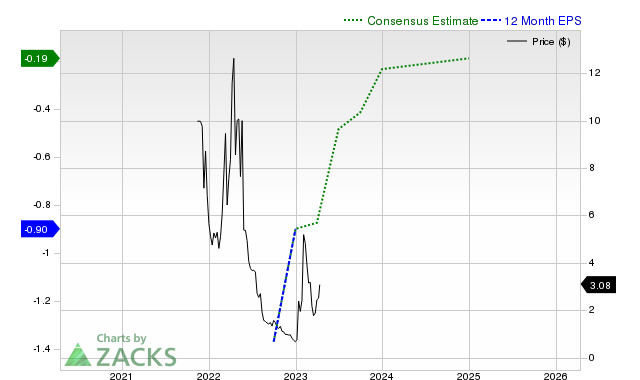Car Dealers Intensify Fight Against EV Sales Quotas

Table of Contents
Economic Concerns Fueling Dealer Resistance to EV Sales Quotas
The core of the dealers' opposition to EV sales quotas stems from significant economic challenges. The transition to selling and servicing EVs requires substantial investments and presents unique profit margin challenges.
High upfront investment costs for EV infrastructure
Dealerships face hefty upfront costs to adapt to the EV market. These investments are crucial for maintaining competitiveness and customer satisfaction but represent a significant financial burden, particularly for smaller, independent dealerships.
- Cost of installing fast chargers: The installation of fast-charging stations requires specialized equipment and significant electrical upgrades, adding considerable expense.
- Upgrading service bays: EV servicing differs from gasoline car maintenance, requiring specialized tools and training for technicians to handle high-voltage systems and battery technology.
- Employee retraining programs: Technicians need specific training to work on EVs, which necessitates investment in training programs and potentially hiring new, specialized staff.
- Marketing costs for EVs: Educating consumers about the benefits of EVs and overcoming range anxiety requires dedicated marketing efforts, adding to the overall investment.
These costs strain dealerships' finances, impacting their profitability and potentially leading to business closures if they cannot recoup these investments quickly enough. The economic impact of EV sales quotas on dealerships, particularly smaller independent ones, cannot be ignored.
Lower profit margins on EVs compared to gasoline vehicles
Dealerships often face lower profit margins on EVs compared to gasoline-powered vehicles. Several factors contribute to this disparity.
- Lower service revenue from EVs: EVs have fewer moving parts and require less frequent maintenance, resulting in reduced service revenue for dealerships.
- Increased competition in the EV market: The EV market is becoming increasingly competitive, with established automakers and new entrants vying for market share, putting pressure on pricing.
- Pressure on pricing from manufacturers: Manufacturers may prioritize market share over dealer profitability, leading to pressure on pricing and thinner profit margins for dealerships.
The combined effect of these factors significantly impacts the financial viability of dealerships and fuels their resistance to quotas that force them to sell more EVs without a corresponding increase in profitability.
Challenges in Meeting EV Sales Quotas
Even if dealerships were willing to invest heavily, meeting mandated EV sales quotas presents considerable operational challenges. These challenges highlight the importance of considering market realities when setting these targets.
Consumer demand and market readiness
Imposing quotas without considering consumer demand and market readiness can create significant challenges. Factors influencing EV adoption vary widely geographically.
- Geographic limitations: EV adoption is often limited by the availability of charging infrastructure, particularly in rural areas. Consumers are hesitant to purchase EVs if they fear range anxiety or lack access to reliable charging.
- Consumer perception of EVs: Some consumers still harbor misconceptions about EVs, including range anxiety, charging times, and perceived limitations in performance.
- Lack of charging stations: A lack of sufficient public charging infrastructure, particularly fast-charging stations, remains a significant barrier to EV adoption in many regions.
These factors influence consumer demand, and imposing quotas exceeding actual market demand can lead to dealerships holding unsold inventory and incurring losses.
Inventory limitations and supply chain disruptions
The ongoing global chip shortage and broader supply chain disruptions continue to constrain the availability of EVs, making it incredibly difficult for dealerships to meet quota targets.
- Impact of supply chain bottlenecks: Delays in receiving EV components significantly impact production and delivery schedules, limiting the number of EVs dealerships can offer for sale.
- Difficulties in securing EV models from manufacturers: Manufacturers may prioritize allocating EVs to markets with higher demand or to dealerships that meet certain criteria, creating unequal access for some dealerships.
- Fluctuating lead times: Unpredictable lead times for EV orders make it challenging for dealerships to accurately forecast inventory and meet sales quotas consistently.
This unpredictability in the supply chain further exacerbates the difficulties dealerships face in meeting mandated EV sales targets.
Dealer Advocacy and Potential Alternatives to Mandatory Quotas
Faced with these challenges, dealerships are actively pursuing various strategies to address their concerns regarding EV sales quotas.
Industry lobbying efforts and legal challenges
Dealerships are engaging in significant lobbying efforts and even legal challenges to contest the quotas.
- Examples of lawsuits filed: Several dealer associations have filed lawsuits challenging the legality and practicality of mandatory EV sales quotas.
- Advocacy groups formed by dealers: Dealer groups are forming coalitions and advocacy organizations to lobby policymakers and raise awareness about the challenges faced by dealerships.
- Lobbying efforts at state and federal levels: Dealerships are actively lobbying at both state and federal levels to influence legislation related to EV sales targets and to advocate for alternative approaches.
These efforts highlight the significant opposition to mandatory quotas and the determination of dealerships to protect their interests.
Incentive-based programs as a more effective approach
Instead of mandatory quotas, incentive-based programs could encourage EV adoption while providing support for dealerships.
- Examples of successful incentive programs: Government rebates, tax credits, and other financial incentives for EV purchases have proven successful in boosting demand in other regions.
- Highlighting their benefits compared to mandates: Incentive-based programs can stimulate market demand organically, eliminating the need for potentially unrealistic mandates.
These programs can help overcome consumer hesitancy and encourage the necessary investment in charging infrastructure, creating a more sustainable and economically viable pathway to widespread EV adoption. A collaborative approach, focusing on incentives and support rather than mandates, offers a more balanced and effective strategy for fostering EV sales.
Conclusion
The fight against EV sales quotas reveals the multifaceted challenges inherent in transitioning to a sustainable automotive future. While the push for electric vehicles is crucial for environmental reasons, a more nuanced approach that considers the economic realities facing car dealerships is essential. Instead of imposing strict quotas, policymakers should explore incentive-based programs that encourage EV adoption while providing the support dealerships need to adapt to the changing market landscape. Finding a balance between environmental goals and the economic viability of the automotive industry is critical for a successful transition to widespread EV adoption. The debate surrounding EV sales quotas will likely continue to be a key factor in shaping the future of the automotive sector, and finding a suitable solution is paramount for both the industry and the environment. Consider the potential impacts of EV sales quotas and explore alternative approaches to promote EV adoption effectively.

Featured Posts
-
 Tadic In Fenerbahce Den Ayriligi Resmen Onaylandi
May 20, 2025
Tadic In Fenerbahce Den Ayriligi Resmen Onaylandi
May 20, 2025 -
 Big Bear Ai Bbai Penny Stock Potential And Investment Risks
May 20, 2025
Big Bear Ai Bbai Penny Stock Potential And Investment Risks
May 20, 2025 -
 Us Army Expands Pacific Presence With Second Typhon Battery Deployment
May 20, 2025
Us Army Expands Pacific Presence With Second Typhon Battery Deployment
May 20, 2025 -
 Flavio Cobolli Wins First Atp Singles Championship In Bucharest
May 20, 2025
Flavio Cobolli Wins First Atp Singles Championship In Bucharest
May 20, 2025 -
 Fenerbahce Nin Tadic Operasyonu Talisca Tartismasinin Goelgesinde
May 20, 2025
Fenerbahce Nin Tadic Operasyonu Talisca Tartismasinin Goelgesinde
May 20, 2025
Latest Posts
-
 Winter Weather Advisory Impact On School Schedules And Transportation
May 20, 2025
Winter Weather Advisory Impact On School Schedules And Transportation
May 20, 2025 -
 Investing In Ai Quantum Computing One Reason To Consider This Stock Now
May 20, 2025
Investing In Ai Quantum Computing One Reason To Consider This Stock Now
May 20, 2025 -
 Staying Safe During Winter Weather School Delays And Preparedness
May 20, 2025
Staying Safe During Winter Weather School Delays And Preparedness
May 20, 2025 -
 This Ai Quantum Computing Stock A Dip Buying Opportunity Based On One Key Metric
May 20, 2025
This Ai Quantum Computing Stock A Dip Buying Opportunity Based On One Key Metric
May 20, 2025 -
 School Delays And Winter Weather Advisories What You Need To Know
May 20, 2025
School Delays And Winter Weather Advisories What You Need To Know
May 20, 2025
